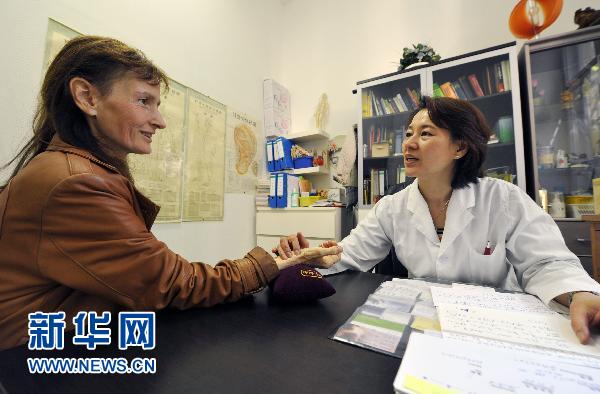TCM presence challenged by EU herbal rule
|
|
| As a 2004 European Union (EU) directive on herbal medicine is to be fully implemented on May 1, herbal medicinal products without a license will no longer be allowed in the EU market, the European Commission said in a press release Friday. |
Even the Commission had admitted that the directive was not fit for the registration of Chinese or Indian medicine when exchanging views on the issue with the European Medicine Agency in Dec. 2008, Chris Dhaenens, president of the European Benefyt Foundation, a leading traditional medicine group, told Xinhua in an exclusive interview on Thursday.
"But they had no money or time to work out an alternative, and so it was left to the member states," he said.
The spokesman insisted each EU member state had to provide a registration system for herbal medicinal products, although it was up to them to decide if a product could be put on the market as medicine or food.
In countries like Belgium, France and Italy, herbal medicinal products must be registered as medicine while the registration procedure can be difficult and costly.
In the Netherlands and Czech Republic, all herbal products can still be put under the food category and there are barely any restrictions.
But even products from countries with liberal policies still cannot be sold to other EU member states where those products might be considered illegal since the enforcement of the directive.
In 2010, the value of TCM from Chinese mainland exported to the EU market reached nearly 2 billion U.S. dollars, about 10 percent of which were herbal medicinal products, or an increase of 10 percent year on year.
But the EU only claims 0.5 percent of China's total TCM export value, while Hong Kong, Japan and America are the three largest export markets for TCM from the Chinese mainland.
"It is not an EU habit to buy medicines from China ... For the time being it is a tiny issue," the spokesman said, adding that the TCM market in Europe is not as big as people are saying.
However, as health regulators in many EU member states seem to be fully implementing the directive and narrowing the backdoor of treating TCM as food supplements, experts said Chinese herbal companies should keep trying to obtain the license.
"In the long run, TCM has to go through medicine registration to be sold as medicine but not food, either the simplified one or standard one, for its growing future," Prof. Lin said.
Besides, traditional herbs and herbal non-medicinal products can continue to be sold as food supplements as the directive only regulates herbal medicinal products. But TCM is usually excluded from the medical insurance system in most EU countries.
"It Chinese herbal medicinal products can obtain a medicine license in Europe, it will be covered by local insurance system, which is a big step for TCM," Lin said.
The revenue of global herbal products has been increasing by 10- 20 percent every year, but China's TCM only takes up about 3 percent of the global market, and 70 percent of its exports are raw herbs with much less added value.
Lin suggested that domestic herbal companies in China should always seek cooperation with local competitors with a long-term vision, as well as establish partnership with prestigious R&D medical institutions in Europe in order to obtain the medicine license.
Some herbal medicinal products from the world's largest TCM producer Tongrentang, a Chinese pharmaceutical company founded in 1669, were reported to reach 15-year presence in the EU market soon.
As some TCM had been uncovered with problems of pesticide residues, excessive heavy metals and chemical composition, according to earlier reports, Prof. Lin urged some TCM companies to deepen internal reform and strengthen self-discipline.
Chinese TCM market also needs standardized regulation, he added.
"The directive could offer some rare opportunities for the TCM to enter into the EU market for the first time as medicine but not food. Anyway it is not a mission impossible," Lin said.
 0
0 







